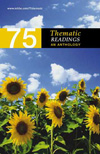
James Q. Wilson |  |
James Q. WilsonJames Q. Wilson, "Cars and Their Enemies" James Q. Wilson (1931- ) was born in Denver, Colorado and earned
a B.A. from the University of the Redlands in 1952 and both an A.M. (1957)
and a Ph.D. (1959) from the University of Chicago. He has advised U.S.
Presidents on things like crime and drug abuse prevention, and has taught
at the University of Chicago, Harvard University, and at the University
of California, Los Angeles. Wilson's books include A Report on Politics
in Los Angeles (1959), Political Organizations (1973), American
Government: Institutions and Policies (1980), and Moral Institutions
(2000). You'll also find his work in periodicals such as The New Republic,
the Wall Street Journal, and the Chronicle of Higher Education.
"Cars and Their Enemies," a look at the conflict between private
and public transportation, was first published in 1997 in Commentary. | QUESTIONS FOR DISCUSSION | CONTENT - With what hypothetical situation does Wilson begin his essay?
- What four primary uses for the car does the author say that people
in the U.S. employ today?
- According to the author, what trend can be seen regarding auto
exhaust pollution since the mid-1960s.
- What happened to the growth of cars per capita in Western Europe
from the mid-1960s to the mid-1980s? What conclusions does Wilson draw
from this trend?
- According to Wilson, how much of its costs does a typical U.S.
mass transit system recoup from fares?
- List some of the criticisms of the suburbs mentioned in the essay.
How does the author counter them? How does he counter the critics?
- What does the author mean by the "social costs" of car
travel? What does he say can be done about them?
STRATEGY AND STYLE - Examine the nature of the support given in paragraph thirty-four
to show that remarks about traffic congestion in large cities are exaggerated.
What kind of support does the author provide? Do you find this persuasive?
Explain. Where else does the author provide similar support?
- Consider the tone of the title of this piece. Are anti-car people
necessarily cars' enemies? Does the tone of the title set the
tone for the rest of the article? Explain.
- What is the author's main argument here? What types of support
does he provide for his main points? Back up your answer with specifics
from the text.
- How did you picture Wilson as you were reading this essay? (Note:
some of the links below will take you to sites with photos of the author.)
Where specifically in the text can you point to support your answer?
| ENGAGING THE TEXT | - Where do you place yourself within American car culture? Are you
an enthusiast, or do you wish cars were never invented? Are you somewhere
in the middle? How might have these things affected your reading?
- What do you like or dislike about mass transit? Pick one form and
think about it. How can you relate your thoughts to this essay?
| SUGGESTIONS FOR SUSTAINED WRITING | - Wilson points out that certain types of danger (such as accidental
injury and death) are tolerable to most driving enthusiasts, but that
other types of dangers (such as muggings and theft) associated with
mass transit are intolerable to members of that same group. Using your
reading and your own observations, write an essay exploring the different
perceptions of danger in this regard.
- Pick another issue in the U.S. in which individual wants are at
odds with social costs. The current debates on public smoking and recycling
are two examples. Write an essay examining your issue and your stand
regarding it.
| FOR FURTHER RESEARCH | Review your answer to Content question e.) above. Wilson mentions public
transit running at a deficit in Atlanta, Detroit, and Houston. Pick another
big U.S. city and study its transit system. What is its budget? What percentage
of its budget does it recoup from fares? If running at a deficit, where
does it make up the money? How consistent are your findings with Wilson's? | WEB CONNECTION | Find out where Wilson appears on this PBS timeline.
What do you think about the theory he proposed? Who else has implemented
it recently? Where could you find out more about these things? | LINKS | Biographical Click here
to visit Wilson's homepage from UCLA. On it you'll find a photo, and
biographical information. Here's another biography
of Wilson. If you had to choose one of these biographies to use in a
related paper, which one would you choose and why?
Bibliographical In 1999 Wilson conducted this interview
with the Acton Institute for the Study of Religion & Liberty. The
topic: The "connection between capitalism and morality." "Two Nations" is the name of a speech Wilson delivered
in 1997 before the American Enterprise Institute. You can read it in
etext by clicking here.
Cultural Did you know that Wilson was on the President's Council on Bioethics?
You can visit this page
and read more about it. Does the topic of bioethics interest you? Want to think more about
it? Take a look at this site put
up by The American Journal of Bioethics and you'll have a chance
to do so. Wilson frequently writes about traditional issues of gender, family,
and parenting. For a different approach, take a look at this alternative
parenting site. What did you
learn from your visit?
|
|
|
|